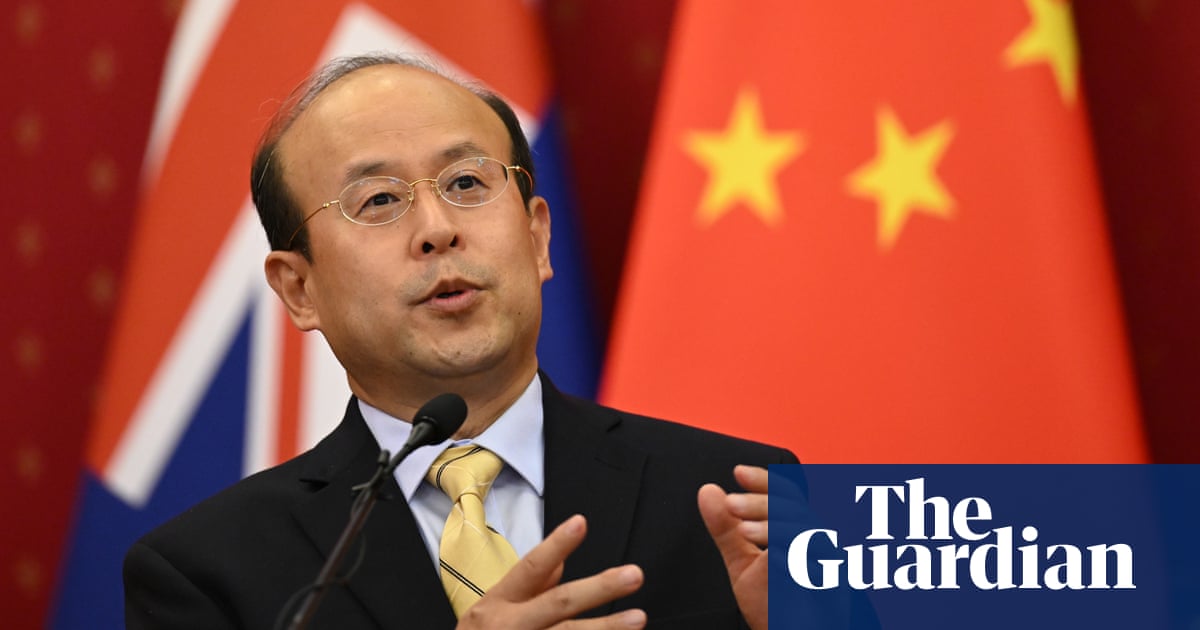
China’s ambassador to Australia has offered a glimmer of hope about the cases of two Australians detained in China, saying he wants a “solution” to be found as quickly as possible as Canberra continues to push for their release.
Xiao Qian also revealed that Chinese and Australian officials were in talks in Geneva about resolving their trade disputes, and he held open the possibility of resuming two-way talks about human rights.
In a wide-ranging press conference at the Chinese embassy in Canberra on Tuesday, Xiao was largely positive about the prospects of continuing the diplomatic thaw between the two countries this year, but stepped up criticism of the Aukus security deal.
In a visit to Beijing last month, Australia’s foreign affairs minister, Penny Wong, raised the cases of detained Australian journalist Cheng Lei and writer Dr Yang Hengjun, whom the Chinese authorities have accused of national security-related offences.
Xiao said on Tuesday that both cases were still subject to legal processes – verdicts have not been announced to date – and it was important to respect China’s legal jurisdiction.
But he confirmed both cases were the focus of significant diplomatic lobbying by Australia.
“The Australian government has been on many occasions approaching the Chinese side asking for a solution to the two individuals in China, almost on each and every occasion where they have an opportunity,” he said.
Xiao said the Chinese side had tried to “patiently explain” that as the legal process remained on foot, there was nothing the government could do.
But he said that on a humanitarian basis, officials were “trying to see if we can facilitate some kind of easier access” for Australian diplomats and “even for their relatives or family members to communicate [with them]”.
It follows Xiao’s comments in September in which he expressed his interest in helping Cheng have contact with her young children for the first time in two years.
On Tuesday the ambassador added: “As for the future, I hope a solution will come as soon as possible, but we need to respect the legal procedure. ”
Louisa Wen, Cheng’s niece and a spokeswoman for the family, has previously said she did not believe Cheng would have done anything to intentionally harm national security. Yang has said he is “100% innocent”.
Xiao took questions from media at the Chinese embassy in what was billed as a new year’s press conference lasting 90 minutes.
It follows reports last week that China was considering lifting its restrictions on coal imports from Australia from April. Xiao did not confirm that plan, but expressed hope for an improvement in the trading relationship.
Australia is also pressing China to drop tariffs and unofficial trade bans on a range of commodities, including on barley and wine, which were rolled out in 2020 at the height of the diplomatic rupture.
At the low point in 2020, China blocked phone calls between Australian government ministers and their direct counterparts and rolled out trade actions that the then-prime minister, Scott Morrison, branded as “economic coercion”.
Both the wine and barley cases are subject to formal challenges via the World Trade Organisation. Xiao said both countries’ representatives at the WTO in Geneva were “in touch with each other” to “talk about the possibility of dropping multilateral issues”.
He suggested that it would be “much easier” to solve the disputes bilaterally “instead of going through the multilateral process for years and years, in some cases”.
But he said these disputes were still in process “and we respect each other” and would see what consensus could be reached.
The Australian trade minister, Don Farrell, has said he is available to meet at any time or place to try to find a resolution, and has also said he hopes for bilateral talks, but at this stage has not decided to drop the WTO cases.
The latest step-up in dialogue follows a meeting between the prime minister, Anthony Albanese, and China’s president, Xi Jinping, on the sidelines of the G20 summit in November.
Australia and China have been at odds over a range of issues over the past five years. The 2020 rupture followed the Morrison government’s early calls for an inquiry into the origins of Covid.
Despite the Albanese government promising a change in tone and to step up engagement with China, it maintains that it has not retreated from any substantive policy positions, and it continues to pursue the Aukus security deal with the US and the UK.
Xiao reiterated China’s criticisms of Aukus, suggesting that it would cost Australian taxpayers vast sums of money. He also suggested that the deal might serve other countries’ interests – not Australia’s – in an apparent reference to claims that Australia would become increasingly dependent on the US.
Xiao said Canberra and Beijing should not treat each other as enemies.


